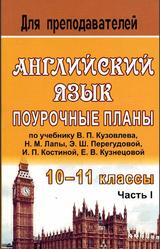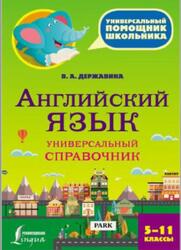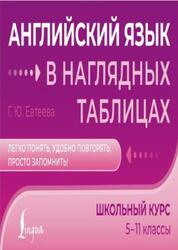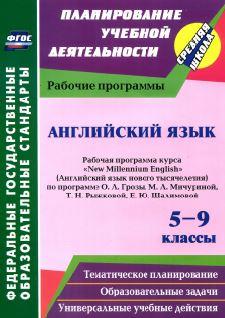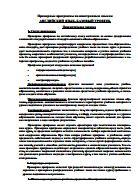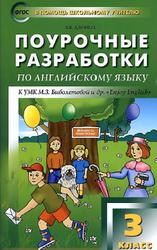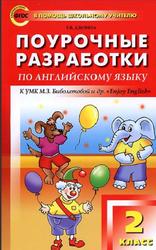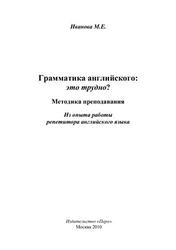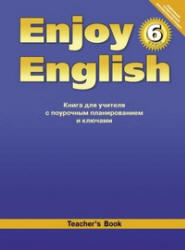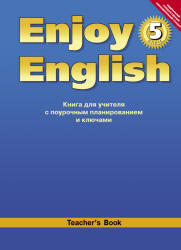Английский язык, 10-11 класс, Поурочные планы, Часть 2, Васильева Л.В., 2008.
Данное пособие предлагает планирование уроков английского языка в 10-11 классах в соответствии с учебником В.П. Кузовлева и др. «English-10-11», а также разработки внеклассных мероприятий и уроков для проведения домашнего чтения.
Пособие предназначено для учителей иностранных языков 10-11 классов общеобразовательных школ и 9 классов школ с углубленным изучением иностранного языка. Будет полезно руководителям методических объединении, кафедр соответствующего направления.
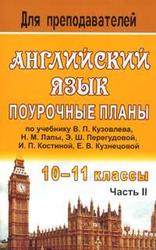
WHAT BENEFITS DO PEOPLE RECEIVE?
Цели:
1. Тренировка произносительных навыков при чтении слов в транскрипции.
2. Предъявление новой лексики по теме «Обеспечение благосостояния».
3. Ознакомление учащихся с субстантивированными прилагательными.
4. Развитие умений и навыков чтения и слушания с целью извлечения конкретной информации.
5. Совершенствование речевых навыков (развитие монологической речи).
Stages
I. Introduction.
The objectives of the lesson.
II. Warming-up activities.
Teacher. Good day, dear friends! We are going to talk about the system of ensuring the welfare of its citizens in Great Britain!
Pupils answer the following questions.
1) Is Great Britain a Welfare State or not?
2) Is the Government responsible for the National Health Service, National Insurance and Social Security?
3) Do the systems of National Insurance and Social Security provide financial help for different categories of citizens?
4) What categories of citizens are entitled to social payments?
5) Must people pay contributions to the National Insurance fund whey they work?
6) Are National Insurance benefits available to the unemployed, the sick and the retired?
7) Are the disabled provided with financial help or not?
8) Is the financial help available to the widowed or not?
9) What are the main social groups who claim social security benefits?
10) Who can claim benefits too?
ОГЛАВЛЕНИЕ
Тематическое планирование
Term I (16 lessons)
Unit V. Is the system of social welfare fair?
Lesson 1. What benefits do people receive?
Lesson 2.I will go private!
Lesson 3. What people and organizations look after pensioners. (Home-reading)
Lesson 4. Do you have to pay for medical care?
Lesson 5. What can you say about the health care service in Russia?
Lesson 6. What do you know about the medical systems in Britain, the USA and Russia? (TV bridge)
Lesson 7. How do elderly people live?
Lesson 8. Getting used to it (Home-reading)
Lesson 9. Where does your granny live?
Lesson 10. Unemployment (Home-reading)
Lesson 11. Who benefits from benefits?
Lesson 12. Do the people of your country live in a welfare state? (Home-reading)
Lesson 13. An ideal welfare state (Project)
Lesson 14. The Secret Diary of Adrian Mole (Reading lesson)
Lesson 15. Benefits for the jobless
Lesson 16. Final grammar test
Внеклассное мероприятие: “What is an ideal welfare state” (Quiz)
Term II (15 lessons)
Unit VI. What helps you to enjoy yourselves?
Lesson 1. What do you know about cinema?
Lesson 2. What problems does the British film industry face? (Home-reading)
Lesson 3. What films do you like best?
Lesson 4. When did the first theatre appear in England? (Home-reading)
Lesson 5. What a marvellous play it was!
Lesson 6. “Pygmalion” (Home-reading)
Lesson 7. Roles to die for
Lesson 8. American special rating systems for films (Home-reading)
Lesson 9. Nothing is so good but it might have been better
Lesson 10. Rating system for children’s films (Home-reading)
Lesson 11. How did you fee! about? (Communication)
Lesson 12. Our Titanic Love Affair (Home-reading)
Lesson 13. A typical love story (Reading lesson)
Lesson 14. Rating system in Russia (Project)
Lesson 15. Final grammar lesson (Unit VI)
Внеклассное мероприятие: “Cinderella” (Musical comedy after Charles Perraut: Пародия на съемки мюзикла по сказке «Золушка»)
Terms III—IV (16 lessons)
Unit VII. Inventions that shook the world
Lesson 1. Do you use modem inventions in everyday life?
Lesson 2. Different opinions about gadgets (Home-reading)
Lesson 3. It’s the thing you need!
Lesson 4. Modem inventions are used in class (Home-reading)
Lesson 5. It’s difficult to imagine it as an invention
Lesson 6. The means of communication at a distance (Home-reading)
Lesson 7. Do you know how to organize the household? (Reading lesson)
Lesson 8. Appliances and gadgets in our everyday life (Home-reading).
Lesson 9. A high-tech life. What are pros and cons?
Lesson 10. What thing can help in the work of a detective? (Home-reading)
Lesson 11. Are you sure you can use the Unit? (Communication)
Lesson 12. Solve a mystery (Home-reading)
Lesson 13. What would you like to invent? (Project)
Lesson 14. Interesting inventions (Reading lesson)
Lesson 15. Tele-shopping (Role-play)
Lesson 16. Final grammar test
Внеклассное мероприятие: “Famous inventors and famous inventions” (Quiz)
Литература.
Купить книгу Английский язык, 10-11 класс, Поурочные планы, Часть 2, Васильева Л.В., 2008 .
Теги: поурочные планы по английскому языку :: английский язык :: Васильева :: 10 класс :: 11 класс

